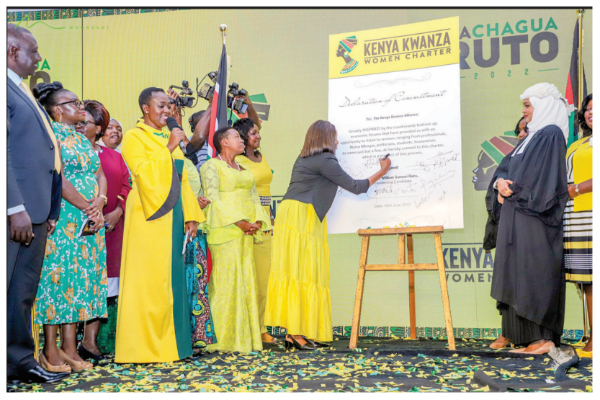Stop pussy-footing, execute gender rule

Former Chief Justice David Maraga in September 2020 advised President Uhuru Kenyatta to dissolve Parliament. He was responding to six petitions by Kenyans who demanded that Parliament be sanctioned for failure to comply with a High Court order that it enacts laws to ensure the country achieves the two-thirds gender rule required in the Constitution on composition in leadership.
To actualise the two-thirds gender principle, Article 261(1) read together with the Fifth Schedule to the Constitution required “Parliament [to] enact any legislation required by this Constitution to be enacted to govern a particular matter within five years” of the promulgation of the Constitution on August 27, 2010.
Indeed, the Supreme Court had held that the Constitution envisioned a progressive realisation of the rule and directed Parliament to enact the requisite legislation by August 27, 2015.
This did not happen. Several attempts to enact relevant laws have been shrouded in chauvinistic rhetoric at the expense of sober debate on the spirit of the Constitution and the practicability of the obligation.
The constitutional demand that not more than two-thirds of the composition of a public institution should be from one gender was meant to address historical injustices that blocked women from ascending to key elective and decision-making positions.
It was calculated to be a potent cure to the unfortunate patriarchal tokenism attitude traditionally associated with women and political leadership.
The constitutional imperative prohibits any form of discrimination in the appointive and elective positions on the basis of one’s gender. It is grounded on the declaration in Article 27(3) of the Constitution that “Women and men have the right to equal treatment, including the right to equal opportunities in political, economic, cultural and social spheres.”
In every sense, the current Parliament owes its stay on a decision by the attorney general to appeal the Maraga advisory. Apex courts have placed the implementation of the gender rule on parliament and political parties, particularly during elections.
That is why the warning by the national polls agency that their nomination lists should reflect gender parity is bound to spark debate. Ostensibly, it is a delicate balancing act of mainstreaming and empowering women in leadership and individual constitutional rights, particularly political choices.
There are legitimate concerns about the enforcement of the rule, but its spirit has never been in dispute. The agency’s warning is a painful reminder of our unmet obligations and aspiration










